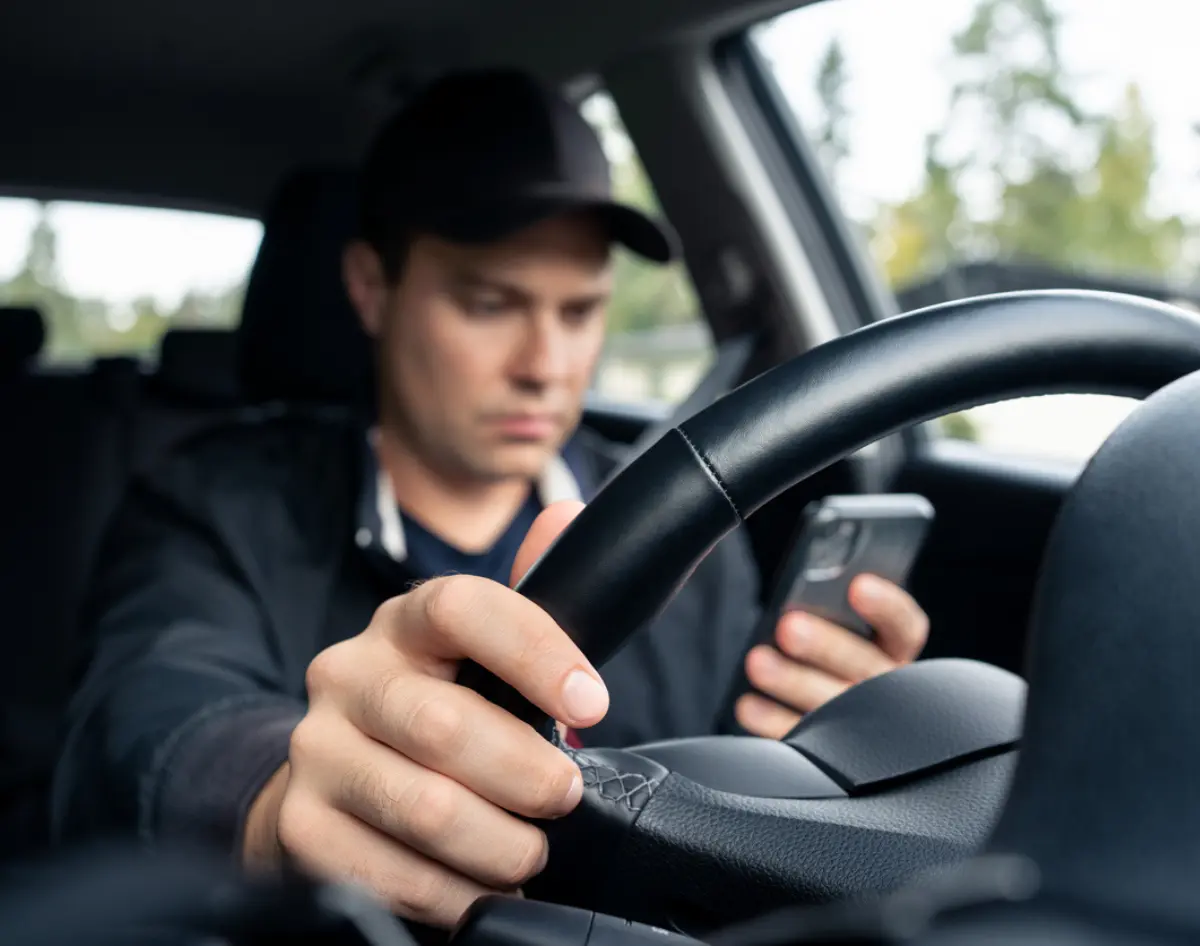How to Get a Failure to Yield Ticket Dismissed

At NY Ticket Defenders, we understand how frustrating it can be to receive a failure to yield ticket in New York City. Not only can these tickets lead to fines, but they can also impact your driving record and insurance rates. If you find yourself facing such a ticket, it’s essential to know your options. This guide will provide you with valuable insights on how to get a failure to yield ticket dismissed, and the steps you can take to protect your driving privileges.
At NY Ticket Defenders, we’re here to help you understand your options and build a strong defense. Contact us today to discuss your case and take the first step towards a favorable outcome.
What is a Failure to Yield Violation?
A failure to yield violation occurs when a driver does not give the right of way to another vehicle or pedestrian as mandated by traffic laws. This type of infraction is particularly prevalent in bustling urban environments like New York City, where the complex interplay of vehicles, cyclists, and pedestrians can lead to misunderstandings and dangerous situations.
Common Scenarios for Failure to Yield
In New York, there are several typical situations that can lead to a failure to yield ticket:
At Intersections
Intersections are one of the most common places where failure to yield violations occur. Drivers must yield to oncoming traffic when making left turns or navigating multi-way stops. For example, if you’re turning left onto a busy street like Broadway, you must ensure that there are no oncoming vehicles before proceeding. Failing to do so can lead to collisions and subsequent tickets.
Crosswalks
Pedestrians have the right of way in crosswalks, a rule that is strictly enforced in New York City. If a driver does not stop for a pedestrian crossing the street, particularly in high-traffic areas like Times Square or near Central Park, they can be cited for failing to yield. These violations are taken seriously, especially when it comes to protecting the safety of pedestrians.
Merging Lanes
When entering a roadway from a driveway or merging onto a highway, drivers are required to yield to vehicles already in motion. For instance, if you’re merging onto the FDR Drive from a local street, you must yield to traffic already on the highway. Ignoring this rule can lead to serious accidents and legal repercussions, as merging without yielding can cause collisions with faster-moving vehicles.
Legal Implications
In New York, failing to yield can carry significant penalties that impact both your finances and your driving record. When cited for a failure to yield violation, you may face the following consequences:
Fines
The standard fine for a failure to yield ticket typically ranges from $150 to $300. The exact amount can vary based on the specifics of the violation and the discretion of the court. For instance:
- First Offense: Usually incurs a fine at the lower end of the spectrum, around $150.
- Subsequent Offenses: May result in higher fines, potentially reaching $300 or more, especially if the violation leads to an accident.
Points on Your Driving Record
In addition to monetary penalties, a failure to yield ticket results in three points being added to your driving record. Accumulating points can lead to several repercussions:
- Increased Insurance Premiums: Insurance companies often raise premiums for drivers with points on their record, as they are viewed as higher-risk individuals. This can lead to significant increases over time.
- License Suspension: If you accumulate 11 points or more within an 18-month period, you may face a license suspension. This can severely impact your ability to drive legally and may require you to attend a hearing to contest the suspension.
Understanding Traffic Laws
Understanding the specific traffic laws related to yielding is crucial for drivers in New York City. Familiarity with these laws not only helps avoid fines and penalties but also promotes safer driving habits that can prevent accidents. For example:
- Yielding to Pedestrians: Always stop for pedestrians at crosswalks, especially in areas with heavy foot traffic like Times Square or near Columbus Circle. Failing to do so can not only result in a ticket but also puts vulnerable individuals at risk.
- Intersections: Knowing when to yield at intersections, particularly those with stop signs or traffic signals, will help you navigate the city more safely. For instance, at a four-way stop, understanding the right-of-way rules is essential to preventing collisions.
In a city as dynamic and densely populated as New York, being aware of yielding rules can make a substantial difference in ensuring the safety of all road users. By following traffic laws, you contribute not only to your own safety but also to that of pedestrians, cyclists, and other drivers.
Steps to Take After Receiving a Ticket
Receiving a failure to yield ticket can be stressful, but knowing how to respond can make a significant difference in your case. Here are the essential steps you should take immediately after receiving a ticket:
Review the Ticket Details
The first step is to carefully examine the ticket for accuracy. Check for:
- Date and Time: Ensure these match the incident.
- Location: Confirm that the address listed is correct.
- Specific Violations: Look at the exact nature of the violation cited.
If you find any discrepancies or errors, note them, as they may help your case.
Gather Evidence
Collecting evidence is crucial in contesting your ticket. Focus on the following:
- Witness Statements: If there were any witnesses to the incident, reach out to them for their contact information. Their testimonies can be invaluable.
- Photographs: Take clear photos of the scene, including any relevant signs or signals. This is especially important in areas with unclear signage or complex traffic patterns.
- Dashcam Footage: If you have a dashcam, review the footage. It may provide essential evidence of your driving behavior during the incident.
Consult a Reckless Driving Lawyer
While you may contemplate handling the ticket independently, consulting with a reckless driving lawyer can provide critical guidance. They can help you understand the intricacies of traffic laws, evaluate your case, and determine the best strategies for contesting the ticket. Their expertise can greatly increase your chances of a favorable outcome.
Prepare for Your Court Appearance
If you decide to contest the ticket, preparing for your court appearance is vital. This includes:
- Understanding the Court Process: Familiarize yourself with how traffic court operates, including what to expect during your hearing.
- Organizing Your Evidence: Create a comprehensive binder that includes all your evidence, such as the ticket, witness statements, photographs, and relevant traffic laws.
Consider Your Options
Before your court date, explore all possible options:
- Traffic School: In some cases, completing a traffic school program may help reduce points on your driving record. Check with the court to see if this option is available for your situation.
- Plea Bargaining: Depending on the circumstances, you may have the opportunity to negotiate a plea bargain. This could involve pleading to a lesser charge, which might carry lighter penalties.
By following these steps, you can effectively navigate the challenges of contesting a failure to yield ticket and work toward achieving a favorable outcome.
Contesting Your Ticket
Contesting a failure to yield ticket is a proactive step that can lead to a more favorable outcome. Here’s a comprehensive guide on how to effectively contest your ticket:
Understand Your Options
When you receive a ticket, you typically have a few options:
- Plead Guilty: Accept the ticket and pay the fine, which may result in points on your record.
- Plead Not Guilty: Contest the ticket in court, which is advisable if you believe you were wrongly cited.
Prepare Your Defense
If you choose to contest the ticket, preparation is key. Here are steps to help build your defense:
Gather Evidence
Collect all relevant evidence that supports your case. This includes:
- Photographs: Capture images of the scene, including traffic signs and road conditions that may have contributed to the incident.
- Witness Statements: Secure statements from anyone who witnessed the event. Their accounts can provide crucial support for your version of events.
- Documentation: Keep a copy of the ticket and any communications related to the case.
Identify Legal Defenses
Some common defenses for a failure to yield ticket include:
- Improper Signage: If traffic signs were unclear or missing, this may bolster your argument.
- Fault of Other Drivers: If another driver’s actions contributed to the situation, this could mitigate your responsibility.
- Emergency Situations: If you were responding to an emergency, this may justify your actions.
Consult a Reckless Driving Lawyer
Engaging a reckless driving lawyer can significantly enhance your defense. They can help you:
- Evaluate Evidence: Determine the strength of your case and identify any weaknesses in the prosecution’s argument.
- Develop a Strategy: Create a tailored strategy based on your unique circumstances and the evidence available.
- Navigate Court Procedures: Familiarize you with court protocols and expectations, ensuring you are well-prepared for your appearance.
Attend Your Court Hearing
On your court date, be punctual and professional. Here’s what to expect:
- Present Your Case: Clearly and calmly present your evidence and arguments. Stick to the facts and avoid emotional appeals.
- Cross-Examine Witnesses: If there are witnesses for the prosecution, your lawyer can help question them to highlight inconsistencies in their testimonies.
Consider a Plea Bargain
If the evidence against you is strong, your lawyer may suggest negotiating a plea bargain. This could involve:
- Pleading to a Lesser Charge: This might carry fewer penalties or points.
- Traffic School: In some cases, completing a traffic school program can reduce points on your record.
Follow Up
After your court appearance, ensure you follow up on any required actions. This may include paying fines, attending traffic school, or completing community service, depending on the outcome of your case.
By actively contesting your ticket and following these steps, you can work towards achieving a positive result and protecting your driving record.
How a Reckless Driving Lawyer Can Help
When faced with a failure to yield ticket, enlisting the assistance of a reckless driving lawyer can be a strategic move. Here’s how they can support you throughout the process:
Legal Expertise
Reckless driving lawyers are well-versed in traffic laws and regulations. They can provide clarity on the specific laws related to your violation, ensuring you understand your rights and obligations. Their knowledge can help you navigate the complexities of the legal system effectively.
Case Evaluation
A lawyer can conduct a thorough evaluation of your case. They will review the details of the ticket, the circumstances surrounding the incident, and any evidence you’ve gathered. This assessment allows them to identify potential weaknesses in the prosecution’s case, which can be pivotal in mounting a defense.
Evidence Gathering
Experienced lawyers know what evidence is necessary to strengthen your case. They can assist in gathering crucial documentation, such as:
- Witness Statements: They can help you obtain and prepare statements from witnesses that support your version of events.
- Expert Testimony: In some cases, they may enlist experts to provide testimony regarding traffic patterns or traffic accident reconstruction, further bolstering your defense.
Court Representation
Having a lawyer represent you in court can significantly impact the outcome of your case. They can present your evidence clearly and persuasively, argue on your behalf, and cross-examine any witnesses presented by the prosecution. Their courtroom experience helps ensure that your case is heard effectively.
Negotiation Skills
A skilled reckless driving lawyer can negotiate with prosecutors to seek a more favorable outcome. This may involve plea bargaining to reduce the charges or penalties associated with your ticket. Their negotiation skills can lead to options that you might not have considered on your own.
Peace of Mind
Navigating the legal system can be daunting, especially for those unfamiliar with traffic laws. Hiring a reckless driving lawyer provides peace of mind, knowing that a knowledgeable professional is handling your case. This allows you to focus on other aspects of your life while your lawyer works to achieve the best possible result.
By working with a reckless driving lawyer, they will show you how to get a failure to yield ticket dismissed or reduced, ultimately protecting your driving record and minimizing financial penalties.
Common Defenses for a Failure to Yield Ticket
When contesting a failure to yield ticket, several defenses can be effective in demonstrating that you were not at fault. Here are some common defenses you may consider:
1. Improper Signage
If the traffic signs in the area were unclear, missing, or improperly placed, this can strengthen your case. Document any issues with signage, as this may indicate that you were not adequately informed of your obligation to yield.
2. Lack of Evidence
The prosecution must prove that you committed the traffic violation. If there is insufficient evidence, such as a lack of witness testimony or unclear photos, you can argue that the case against you is weak.
3. Emergency Situations
If you were responding to an emergency—such as yielding to an emergency vehicle or avoiding a sudden obstacle—you may have had a valid reason for your actions. Documenting the circumstances surrounding the incident can help support this defense.
4. Other Driver’s Actions
If another driver’s reckless or illegal behavior contributed to the situation, this may absolve you of responsibility. For example, if another vehicle entered the intersection aggressively, you can argue that their actions were the primary cause of the incident.
5. Mechanical Failure
In some cases, a sudden mechanical failure may prevent you from yielding as required. If you can prove that your vehicle experienced an unexpected malfunction that you could not have anticipated, this may serve as a valid defense.
6. Conflicting Witness Testimony
If witnesses provide conflicting accounts of the incident, this can create reasonable doubt about your guilt. Ensure you gather statements from all available witnesses to highlight any inconsistencies.
7. Traffic Conditions
Poor weather conditions, such as heavy rain or fog, may have contributed to the incident. If you can demonstrate that the conditions were hazardous and affected your ability to yield safely, this may be a valid defense.
By utilizing these common defenses, you can effectively challenge a failure to yield traffic ticket and work toward a favorable resolution.
What Not To Do: Ineffective Defenses
When contesting a failure to yield ticket, it’s essential to avoid certain ineffective defenses that can undermine your case. Here are common pitfalls to watch out for:
Relying on Emotional Appeals
While it’s natural to feel frustrated or upset about receiving a ticket, relying solely on emotional appeals in court is not effective. Judges are primarily focused on the facts and evidence presented rather than emotional arguments. Stick to the evidence and legal defenses relevant to your case.
Ignoring the Details of the Ticket
Failing to thoroughly review the ticket can lead to missed opportunities for dismissal. Pay attention to:
- Incorrect Information: If there are errors in the ticket, such as the wrong date or location, these discrepancies may provide grounds for dismissal.
- Specific Violation Code: Ensure the violation code cited matches the circumstances of your case. An incorrect citation can be a strong argument for dismissal.
Making General Statements
Avoid making broad or vague statements about your driving habits or experiences. Instead, focus on specific facts and evidence that directly relate to the incident. Generalizations can weaken your credibility and fail to address the specifics of the traffic violation.
Attacking the Officer’s Credibility
While challenging the credibility of the officer who issued the ticket may seem appealing, it can backfire. Instead of attacking their character, focus on the facts of the case. If there were procedural errors, present those clearly without resorting to personal attacks.
Failing to Gather Evidence
Neglecting to collect and present evidence can significantly weaken your defense. Always gather:
- Photographs: Capture images of the scene, signs, and any relevant conditions.
- Witness Statements: Obtain statements from anyone who witnessed the incident, as their accounts can support your case.
Not Consulting a Lawyer
Handling a failure to yield ticket without legal guidance can be risky. Attempting to navigate the legal system alone may lead to mistakes that could have been avoided with professional assistance. Consulting a reckless driving lawyer can help you formulate a solid defense strategy.
Ignoring Court Procedures
Understanding court procedures is crucial. Failing to follow proper protocols, such as submitting evidence on time or not appearing in court, can negatively impact your case. Familiarize yourself with the expectations for your court appearance to avoid unnecessary complications.
By avoiding these ineffective defenses and focusing on a well-prepared, factual approach, you can enhance your chances of successfully contesting your failure to yield ticket.
Get the Help You Need
If you’ve received a failure to yield ticket, don’t navigate the legal process alone. At NY Ticket Defenders, we’re here to help you understand your options for how to get a failure to yield ticket dismissed and build a strong defense. Contact us today to discuss your case and take the first step towards a favorable outcome.



